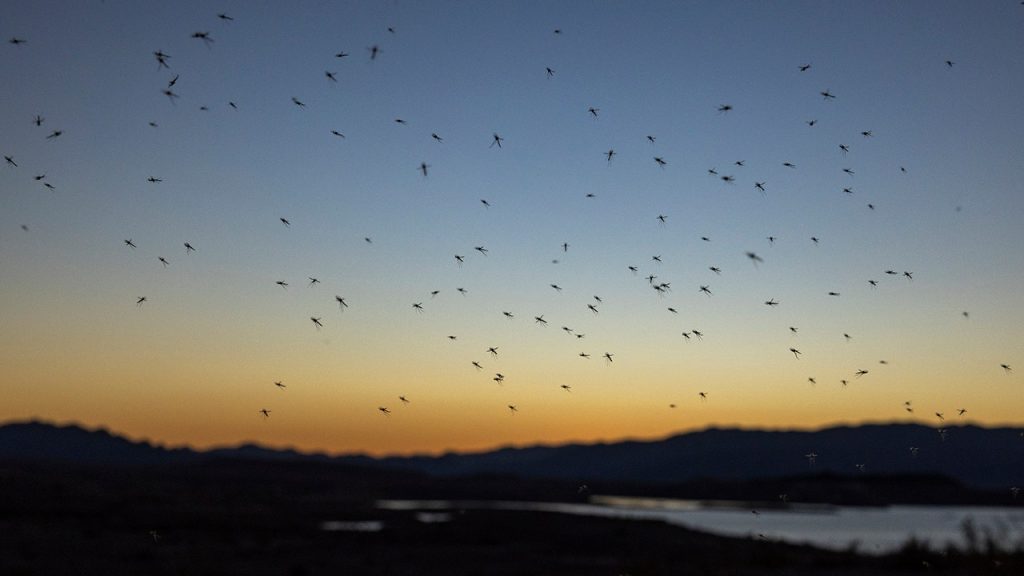Officials in Texas are blaming climate change for a surge in mosquito populations in the town of Conroe, with residents reporting unprecedented levels of mosquitoes. Flood-inducing rains in the area have created ideal breeding grounds for the insects, leading to an increase in both the number and size of mosquitoes. Residents like Mith Varley and Linda Adams are struggling to cope, with Varley noting that simply opening the car door can lead to a swarm of mosquitoes entering. Adams, who believes her red hair may make her more attractive to the insects, never leaves the house without applying bug spray with at least 40% DEET.
Max Vigilant, the director of mosquito and vector control in Harris County, acknowledges that climate change is likely a major factor in the mosquito population explosion. He points to hotter temperatures arriving earlier in the year as a contributing factor, making conditions more favorable for mosquitoes to thrive. Despite efforts by the county’s public health department to target mosquitoes that can carry diseases like West Nile virus with pesticides, residents are still feeling the impact of the mosquito infestation. Vigilant emphasizes the importance of monitoring and controlling mosquito populations to prevent the spread of diseases.
Harris County hosts more than 50 species of mosquitoes, posing a significant challenge for mosquito control efforts. The public health department in the county works diligently to target mosquitoes that can transmit diseases, though the exact size of the mosquito population remains difficult to determine. Residents like Josue Medina are feeling the effects firsthand, with mosquito bites leaving painful welts on their bodies. As the mosquito season intensifies, residents are urged to take precautions such as using repellent and eliminating breeding sites to protect themselves from mosquito-borne illnesses.
The severity of the mosquito infestation in Texas is underscored by the approval of a second vaccine against the mosquito-borne disease Dengue, as outbreaks of the disease intensify. With mosquito levels comparable to those of previous years, officials and residents alike are grappling with the repercussions of the rapidly growing mosquito populations. The impact of climate change on the increased mosquito activity is evident, as warmer temperatures create more conducive environments for mosquitoes to thrive. As the situation in Texas continues to worsen, efforts to combat mosquito-borne diseases are crucial for the health and well-being of residents.
The persistence of mosquito-related issues in Texas highlights the ongoing challenges faced by communities in the area. With the mosquito season proving to be particularly harsh this year, residents like Linda Adams and Josue Medina are doing their best to protect themselves from mosquito bites. The reliance on bug spray with high concentrations of DEET and other preventive measures are essential for minimizing the risk of mosquito-borne illnesses. Despite the efforts of mosquito control officials, the battle against mosquitoes in Texas remains ongoing as residents strive to adapt to the changing environmental conditions and mitigate the impacts of climate change on mosquito populations.















